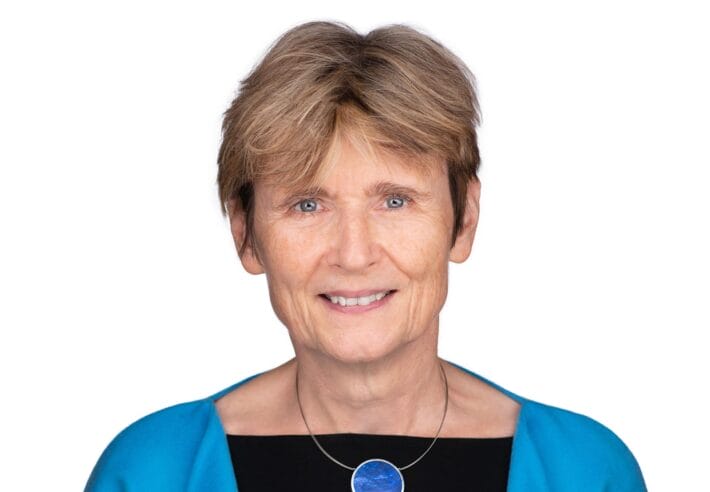
Molecular biologist Silvi Rouskin is driven to understand what enables RNA viruses to be so destructive, particularly given their minuscule physical size and the length of their genomes compared to their human hosts. “Those are fundamental questions that we don’t understand and are very important,” Silvi says, “because viruses will always be around and they’ll always be a threat to human health.”
Born in Sofia, Bulgaria, to musician parents, Silvi describes her younger self as “the nerdy kid of the rock stars in the neighborhood.” Her parents’ unconventional lifestyle provided Silvi with a powerful model of nonconformity and the value of independence. “I got from [them] that you can push the envelope—that you can do impossible things,” says Silvi. “My mom would always say, ‘It’s OK if there’s no precedent. You’re going to be the precedent.’”
Silvi is fiercely independent; she questions authority, and seeks deeper answers and understanding in all of her research and investigations. Feeling stifled by the education system in Bulgaria, Silvi moved to the United States on her own at the age of 15 as a high school exchange student. “Regardless of your background, if you have enough passion and if you’re good enough and if you try hard enough, [the United States is] this place where you can make anything happen.”
The democratic nature of schooling and scientific inquiry that Silvi encountered in the United States catalyzed her drive to pursue higher education and a career in science. Within a year of arriving in the United States, Silvi studied to take the GED so that she could apply to college early. At the age of 16, she was accepted into the Florida Institute of Technology with a generous scholarship.

Now a fellow at the Whitehead Institute, Silvi continues to push the envelope. The Rouskin lab was one of the first in the United States that began to study the SARS-CoV-2 virus in the spring of 2020. “The pandemic has been an extreme cause for speed and urgency in the lab.” Silvi recalls, “We wanted to work as fast as possible because we didn’t know how bad it [was] going to be.”
Her lab’s current research seeks to examine ways that the biomolecule’s structure could be targeted by potential therapies or interventions. “Once we know all the different shapes that this viral RNA can form, and we understand the chemistry of them, then we can also develop small molecules that can bind to them and interfere with infection,” she says. “Our research can really matter right now. And right now is the moment where we can make a difference.”

“That’s our dream,” says Silvi. “To understand the basic fundamental chemical and biophysical principles that will allow us to design new [therapies] against new viruses…. I want my work to matter. I hope that, based on our work, one day we would be able to prevent pandemics like the one we’re having now.”
A graduate of the Florida Institute of Technology and the University of California San Francisco, Silvi was the recipient of 2020 awards from the Chan Zuckerberg Initiative and the Pershing Square Foundation. She receives a Vilcek Prize for Creative Promise in Biomedical Science for her groundbreaking work exploring the structures of viral RNA, aiding the potential development of RNA-based therapeutics for HIV and COVID-19.
Related News
Katalin Karikó Wins a 2022 Breakthrough Prize in Life Sciences

Katalin Karikó: The sacrifices and successes of immigrant scientists

Ruth Lehmann: “There’s always another question… there’s always more to find out”

You may also be interested in
Silvi Rouskin

Katalin Karikó

Ruth Lehmann
